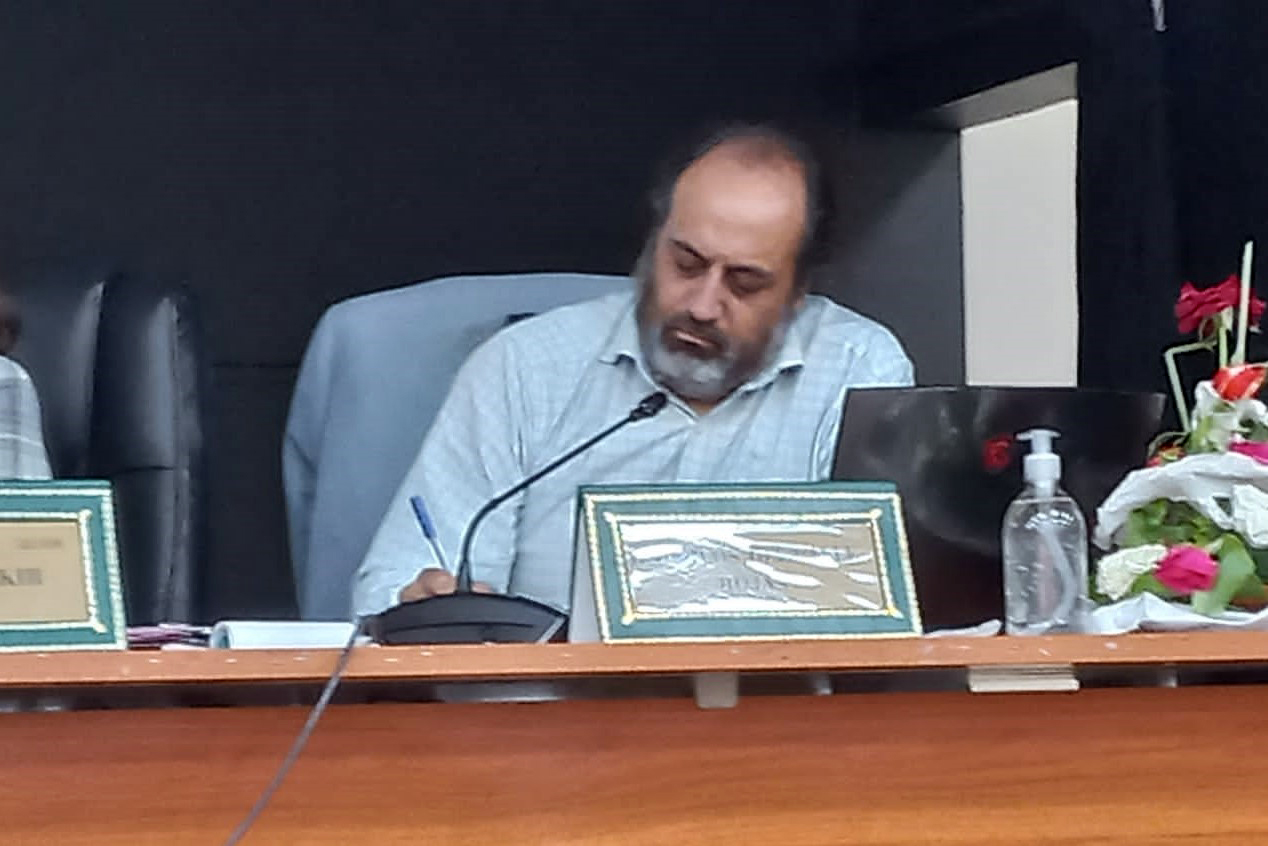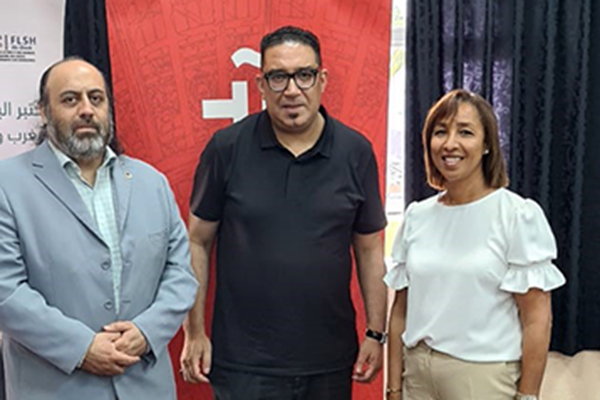|
The international cooperation agreements with Moroccan universities will benefit joint research and postgraduate activities. |
After the invitation of the Moroccan embassy in Chile, Dr. Carlos del Valle of the Universidad de La Frontera (UFRO) visited the country and participated in a variety of activities that allowed making progress regarding international cooperation with the Doctoral Program in Communications of UFRO, especially regarding research and postgraduate studies. The relations between the Doctoral Program of UFRO, which is led by Dr. Carlos del Valle together with the Chilean university Universidad Austral de Chile, and the Moroccan embassy date back to 2018, when they carried out several activities together. In this context, the objective of this visit was to open new spaces for bilateral cooperation. The visit included three cities, visiting the universities UFRO cooperates with: Sidi Mohamed Ben Abdellah University in Fez, Mohammed V University in Rabat, and Hassan II University of Casablanca. Apart from different meetings, Dr. del Valle held a conference in the second International Congress of the Moroccan Association for Iberian and Latin-American Studies: ‘Morocco and Latin-America: Common and imaginary heritage and crossed experiences’. In addition, he had the chance to get to know the University of al-Qarawiyyin, which was founded by Fátima al-Fihri in the year 859 and is known as the oldest university in the world. COOPERATION AGREEMENTS The Moroccan embassy and the Center for Culture in Chile facilitate the relations established between the Doctoral Program and the Moroccan universities. Currently, UFRO has a cooperation agreement with the Abdelmalek Essaâdi University in Tetouan, and another agreement draft with the Hassan II University of Casablanca, which they started to work on after the visit of Dr. del Valle. The ambassador of Morocco to Chile, Kenza El Ghali, pointed out that the links with UFRO facilitate cultural exchange and open spaces for new ideas of cooperation, as for example the establishment of a Moroccan Chair or the exchange of doctoral students. “In order to strengthen this relationship and to work on the Chair, we elaborated an agreement between our Center for Culture and the university,” the diplomat commented, indicating that there are several issues of common interest. She added that one of the aims is to generate student mobility opportunities on both sides, in order to share each country’s knowledge and experiences. According to Dr. del Valle, the agreements with these universities focus on joint research, publications and future cotutelle and double degree agreements, especially in the fields of communications and culture, as well as communication in inter- and multicultural contexts. “We have a lot in common and we want to make progress regarding compared studies, especially in inter- and multicultural contexts, for example considering policies with the Berbers or Imazighen, besides the differences between both groups,” he indicated. Regarding the activities carried out during his visit, Dr. del Valle commented: “We made progress with the two universities and during our visit we were able to get in direct contact with the researchers and to start a new partnership with one more university”. He also pointed out that in the second semester this year, one of the students of the doctoral program in communications will go to the Abdelmalek Essaâdi University in Tetouan in Morocco, in order to work on his research and different publications. MOROCCAN CHAIR Dr. del Valle explained that they are working on a specific agreement to establish a Moroccan Chair for the doctoral program that will allow to hold conferences and seminars with Moroccan academics, as well as to work on joint research and publications, especially in the field of inter- and multicultural communication. “At our university, we need a wider perspective of interculturality, which is already theoretically and politically exhausted and requires new explanatory models,” he explained. Written by: UFRO Communications Office |

